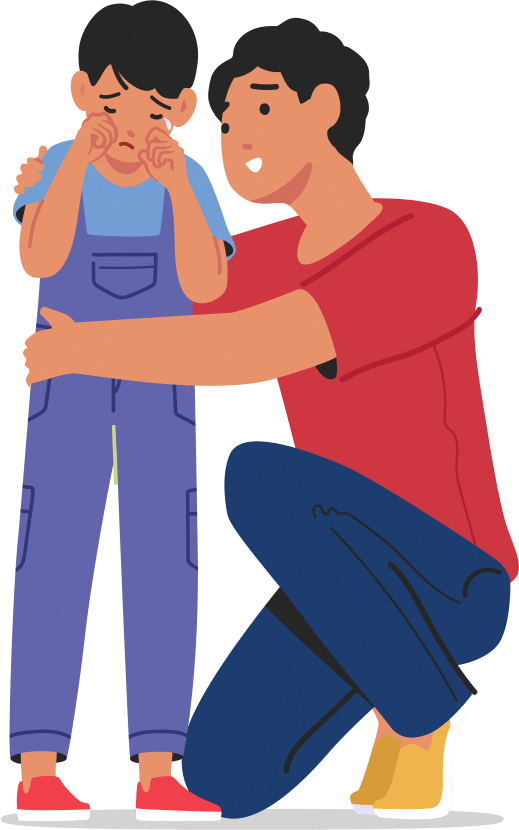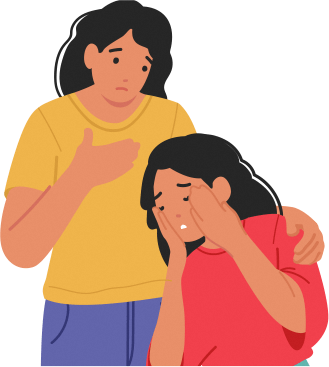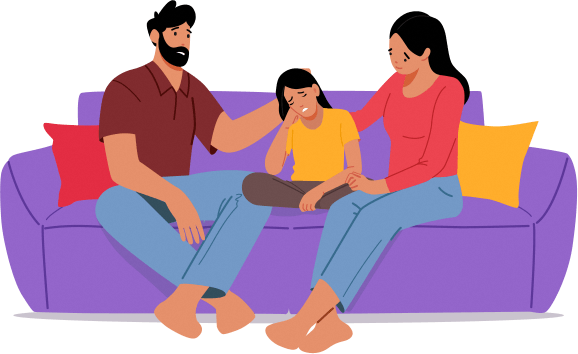Share with them the specific behaviour or opinion you do not agree with and why, while letting them know loving and accepting them unconditionally does not mean you accept bad behaviour.
For example, you can say, “I understand you are angry, but we don’t slam doors in this house as it is rude. If you’re angry and need space to calm down, let me know so we can find another time to talk about it. I love you no matter what.”
Here are some examples of what you can do:

When you disagree with your child’s behaviour or opinion

When your child makes a mistake

When your child makes a mistake

Reassure them that everyone makes mistakes, even yourself, and that mistakes are not a reflection of who they are as a person

Most importantly, let them know you still love them and want to help them work through the issue

If they say things like “I should have known better”, “I’m such an idiot”, or think they can never do anything right, remind them the goal is not to be perfect but to do the best they can

Explain to them that mistakes are a healthy part of life and learning from these mistakes can help them grow

You can also help them reflect by asking questions like “What did you learn from this that can help you next time?” or “How can you grow from this experience?”


